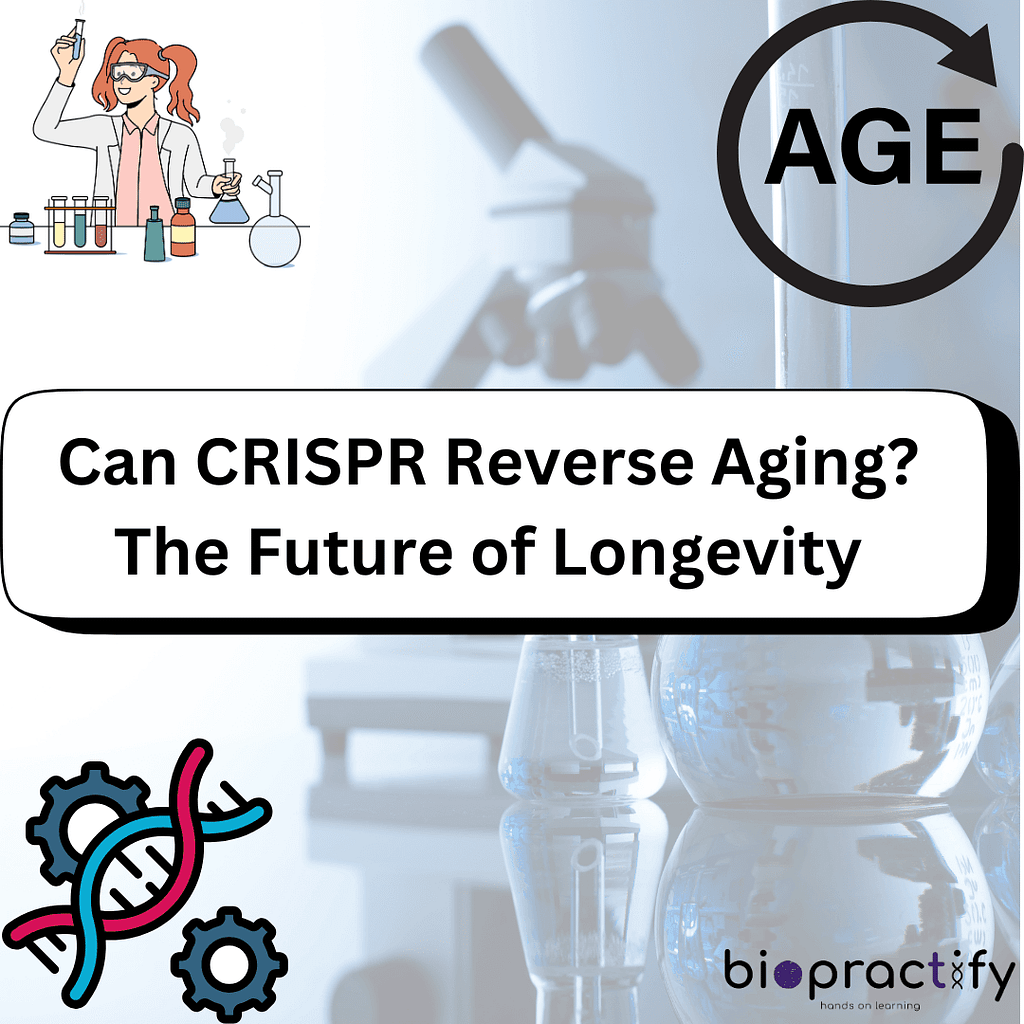Introduction
Aging is a natural process, but what if science could slow it down or even reverse it? Can CRISPR be used for anti-aging and longevity? Scientists are now exploring the potential of CRISPR gene-editing technology to extend human lifespan and delay age-related diseases. But is it really possible? Let’s find out.

How Can CRISPR Be Used for Anti-Aging and Longevity?
CRISPR (Clustered Regularly Interspaced Short Palindromic Repeats) is a revolutionary gene-editing tool that allows scientists to modify DNA with precision. This technology is being tested to correct genetic mutations that contribute to aging and age-related diseases.
Aging is influenced by genetic factors, cellular damage, and environmental influences. Researchers believe that CRISPR can edit genes linked to aging, such as the FOXO3 gene, which is associated with longevity. According to this study from Nature, scientists are already testing CRISPR for age-related conditions like Alzheimer’s and heart disease.
CRISPR’s Potential Benefits for Longevity
- Repairing DNA Damage
As we age, DNA damage accumulates, leading to cell dysfunction. CRISPR can be used to repair damaged DNA, potentially slowing the aging process. - Reducing Age-Related Diseases
Age-related diseases like Alzheimer’s, Parkinson’s, and cardiovascular diseases are caused by genetic mutations. CRISPR can be used for anti-aging and longevity by fixing these mutations, improving overall health. - Enhancing Stem Cell Therapy
Stem cells play a vital role in tissue regeneration. CRISPR can modify stem cells to improve their ability to regenerate tissues, offering a potential way to slow aging. - Increasing Lifespan
Research suggests that CRISPR could activate longevity genes, such as sirtuins, which help protect cells from aging. Harvard Medical School is currently studying how gene editing could extend human life.
Challenges and Ethical Concerns
Despite its promise, using CRISPR for anti-aging and longevity faces several challenges:
- Unintended Mutations: Editing genes may cause unintended changes, leading to new health risks.
- Ethical Dilemmas: Should humans have the right to edit their own genes for longevity? This raises concerns about genetic inequality.
- Regulatory Hurdles: Many countries have strict regulations on genetic modifications, limiting CRISPR’s application in anti-aging therapies.
The Future of CRISPR for Longevity
While CRISPR is still in the experimental stage for aging, scientists are optimistic. In the next decade, we may see CRISPR therapies that slow aging and prevent age-related diseases. This could revolutionize medicine and human health.
Want to learn more about biotechnology advancements? Check out our article on biotechnology innovations to see how gene editing is shaping the future.
Conclusion
So, can CRISPR be used for anti-aging and longevity? The answer is: possibly. While it holds great promise, more research and ethical discussions are needed before it becomes a reality. As scientists continue to explore CRISPR’s potential, the dream of extending human lifespan might not be too far away.


Leave a Reply